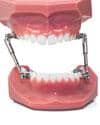G. Smiech-Slomkowska and colleagues from the Medical University of Lodz (Poland), Department of Orthodontics have published a report called “The effect of oral health education on dental plaque development and the level of caries-related Streptococcus mutans and Lactobacillus spp.” According to the authors, “The aim of this study was to determine the influence of oral hygiene instruction (OHI) on oral hygiene status and on the reduction of inducing bacteria (Streptococcus mutans and Lactobacillus spp.) in 30 subjects (12 males and 18 females) with an age range from 10 to 14 years. The patients were instructed on how to carry out effective oral hygiene close to brackets and ligatures, and in the use of dental floss for cleaning spaces around brackets, between the teeth and under archwires.
"The plaque index (PI) was used to measure oral hygiene status, and the level of S. mutans and Lactobacillus spp. was determined using the colour reaction time test before and after 1 month of OHI. Statistical analysis included a Student’s t-test and chi-square test. The results showed that OHI significantly improved oral hygiene. The percentage of patients with a PI exceeding 1 decreased from 23.3 to 10 percent and for those with a PI below 0.1 it increased from 20 to 60 per cent. The level of S. mutans and Lactobacillus spp. was not reduced. The percentage of subjects with excessive levels of S. mutans (above 106 bacteria in 1 ml of saliva) decreased after OHI but only from 73.3 to 70 percent. For Lactobacillus spp., a level above 10(5) of bacteria in 1 ml of saliva was found for all subjects at both time points,” Smiech-Slomkowska and colleagues wrote.
The researchers concluded, “Patients with fixed appliances, trained in scrupulous tooth cleaning, remain at risk of developing caries and should be carefully monitored.”
Smiech-Slomkowska and colleagues published their study in The European Journal of Orthodontics.







